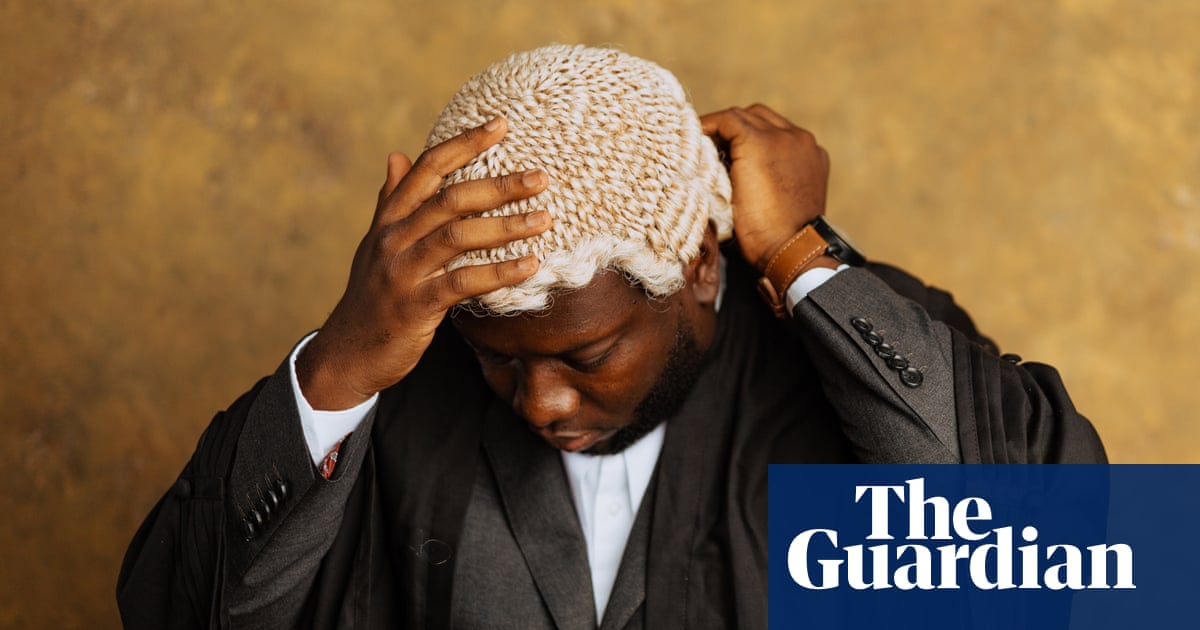Is the “cab rank” rule for barristers fair? It means every accused party in the UK gets the legal representation they’re entitled to – but it also means barristers may have to defend people who have done things they feel are indefensible. J McBride, Birmingham
Send new questions to nq@theguardian.com.
Readers reply
The error Mr McBride makes is in assuming the client is guilty and that his barrister is trying to get him off.
The defence barrister is there to test the prosecution’s evidence since the prosecution must prove beyond reasonable doubt that the client is guilty as charged. We’ve all read about cases where exculpatory evidence has been withheld, forensic results contaminated or mistaken identity has led to wrongful conviction. You cannot expect a layperson to know the rules of disclosure, the admissibility of evidence or the scope of the Police and Criminal Evidence Act. He needs a professional to ensure his rights are protected. Beyond that, if the prosecution evidence cannot be discredited, he will be convicted.
Guilty or innocent, the cab rank system enables justice to be served: the guilty to be convicted and the innocent to be acquitted. Nicky Ottaway JP, Surrey
Surely a barrister is defending the person not the offence? A barrister is never defending the indefensible: they are defending a person who may or may not have done the thing that is indefensible. It is for the state to prove that the defendant is guilty of the indefensible.
Whenever we see a barrister being questioned over their morality when taking the task of defending the accused in such a case we are witnessing somebody calling for a potentially innocent person to be convicted unfairly for a crime of which we know only limited detail. John Close, by email
After 20 years as a barrister, and another 20 as a judge, I would suggest the rule is more often observed in breach than observance.
Barristers’ clerks, who make the bookings, are well aware of what work each barrister is willing to do or not. If the work is not to the taste of the relevant barrister, they will be “unavailable”, or the fee will be preposterous. Martin Kurrein, Norfolk
How can you repeatedly defend a client you know is guilty? Surely it turns you into a liar as well, but it’s what some barristers are known for, and take pride in. And ripping into victims who are already traumatised because it’s your job to discredit them, irrespective of the facts. Yet the law is supposed to be about justice. LorLala
Everyone is entitled to have a defence. Not necessarily the best defence if they don’t have money. Professionals have to deal with offenders no matter what they have done. They are still human beings, even if we disapprove strongly with their actions. Offenders may have mitigating circumstances, which need presenting to the court. One has to put one’s personal feelings to one side in order to work with them. scouser58
The age-old answer to this kind of question talks about legal representatives not making value or guilty/innocent judgments against clients accused of horrible things as that’s the job of juries and sometimes judges.
However, I have a better answer: think “Testing the system, not defending an accused person.” Barristers represent accused people to ensure that the legal system itself is fair, robust, impartial and following its own rules.
With every case they essentially run a legal system MOT, and make sure that if someone is eventually found guilty or innocent they can be assured that the result would have been the same no matter the person involved.
That’s the theory. But we all know it doesn’t always work like that. Ferg Ferguson, by email
It should not be for us to predetermine the optics of a particular case and based upon that, decide if we will represent someone. That would be justice in the court of public opinion, where emotion, rather than evidence and procedure, is the driving force. Tasaddat Hussain, barrister, Manchester
The cab rank rule is needed to prevent younger barristers from being unable to access more complex and high level cases in order to help them learn – it is almost guaranteed that senior barristers would cherrypick cases if the cab rank rule was not in place. As an aspiring barrister, I would defend the indefensible that the cab rank rule has forced me to take on, even if I know I am bound to lose against the prosecution. Because, through that trial, we will have found the truth, and brought justice to the victims of any indefensible crimes. tacobrit
If a defendant cannot secure representation, his trial would not be fair. A legally qualified barrister versus a layperson does not afford equality of arms. A criminal trial of an unrepresented defendant takes considerably longer than a trial of a represented defendant and incurs far greater costs.
Moreover, a barrister representing a defendant in a rape trial will know the rules of what questions are not permitted to be put to a victim of rape; an unrepresented defendant would not and, regardless of a judge’s attempts to keep the defendant “in line”, the victim would endure a more harrowing ordeal than would otherwise be the case.
Gary Blackwell, by email
I was always asked how I could defend someone I thought was guilty but never how I could prosecute someone I thought was innocent.
For me the whole point of defending or prosecuting was to help the jury arrive at the right verdict. If, having fought my client’s case as vigorously as permitted, he or she was convicted, then the likelihood of guilt was increased and therefore justice served. John Maxwell, by email
While it may mean that barristers must sometimes defend individuals accused of indefensible acts, this is a cornerstone of a fair legal system. The role of a defence barrister is not to endorse the crime but to ensure that the prosecution proves its case beyond reasonable doubt, a burden that protects the innocent.
Defending the “indefensible” strengthens the legal system. It sharpens the skills of defence barristers and maintains a high standard of scrutiny for all prosecutions. As the saying goes, “It is better that 12 guilty men go free than one innocent man be wrongly convicted.”
The cab rank rule, therefore, is not only fair, it is essential for justice. Lola Ogunjobi, Kent
The cab rank rule is correct and gives barristers, especially younger barristers, the opportunity to improve their experience. Something that cannot be obtained from law books. nlygo
My experience was that the so-called “cab-rank” rule is capable of being avoided by barristers which explains why, in areas of the law such as personal injury or professional negligence, barristers tend to represent either claimants or defendants but seldom both. Much of that is, I suspect, attributable to specific barristers’ chambers building up a reputation for either claimant or defendant work.
However, I believe it would be a great mistake to abolish the rule. Even though its operation may be imperfect, it embodies important principles which ought to be preserved. Edward Coulson, North Yorkshire
If barristers choose who to defend, the public and politicians can accuse them of condoning in some way the behaviour of a person who is ultimately found guilty of a dreadful crime. As it is, the barrister can say with perfect truth “Everyone, has the right to a defence and I have no choice but to do the best I can to present that defence, irrespective of my beliefs.”
Working in IT, I don’t get a final choice on what I do. Unless there is a clear conflict of interest or it places the barrister’s mental health at serious risk, the cab rank rule should apply. Lewis Graham, Hertfordshire










